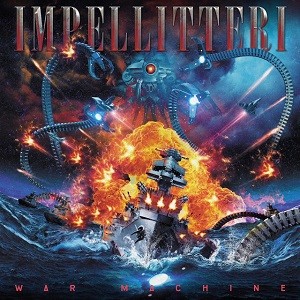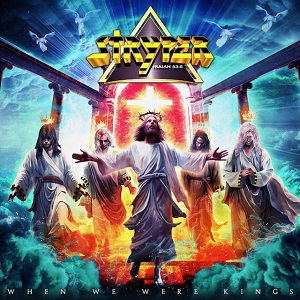MARTIN FURIA Talks 40 Years Of DESTRUCTION, Heavy New BARK Album – “It’s A Way To Exorcise Shit”
January 17, 2023, a year ago
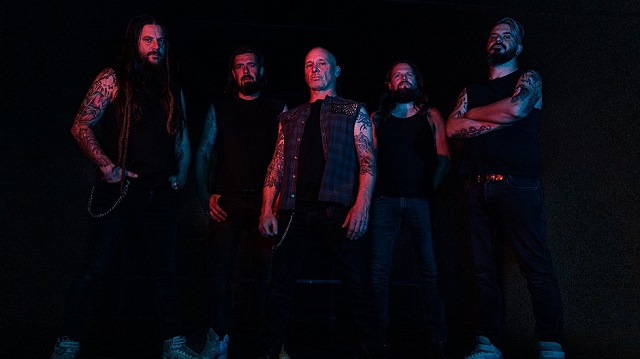
Argentinian shredder by way of Antwerp, Belgium, Martin Furia is one of the unsung ironmen of modern heavy metal.
A tireless sound tech, studio wizard and tour manager who has collaborated with the likes of Nervosa, Evil Invaders, Toxik, Aborted and Flotsam and Jetsam, Furia recently built upon his relationship with iconic German thrashers Destruction, joining the band full-time as their new guitarist in 2021.
Now, hot on the heels of Destruction’s 2022 opus Diabolical and the release of the latest collection (Rambler Of Aeons) from his frenzied collective Bark, Furia sits down with BraveWords for a deep dive into his busy post-pandemic life, introductions to heavy metal and much more!
BraveWords: From not being on the road to feeling like you're moving a thousand miles an hour; going out on tour with different bands, recording with Bark and Destruction, sound engineering when you have the time and life in the studio. How was that contrast between the early pandemic days to now being incredibly busy?
Martin Furia: “The contrast was huge, man, because in 2020, the first three months I was already on the road with Nervosa in Asia. Then I came and I did the tour with Destruction all over Europe. Destruction, Suicidal Angels, Legion of the Damned. It was a great tour. We did all over Europe. Then I joined Nervosa again in Scandinavia, then we played in Mexico and when I came back it was the day that Belgium went into lockdown. So I really made it, I'm not kidding. I think it was the 13th of March, and that's when the lockdown started officially, you know, the country was locked completely, so I barely made it.
“And then it was insane because that year I wasn't home for a single day until March 13. And then all of a sudden I was home all the time. It was really weird. Also all the gigs lined up falling, you know, and this is not only something I love to do, but it's also my job. And all of a sudden, nothing, it's all gone. So it was weird. It was pretty critical in many aspects.
“I was lucky I had worked a lot before so I could manage. And I started to make music, you know, compose a lot of songs. That's why Bark could release albums so easily and I have a lot more songs left. It was a very prolific time. It was just writing, writing, writing. And also to keep your head a little bit busy with all this bad news all the time. You know, it was horrible. But yeah, now is great.
“We went on the road a lot with Destruction. Now as a guitarist, that was a big change also in my life. Going to South America as a South American, going there to play was insane. The reaction, you know, not only from Argentenians to have an Argentinian in Destruction, but all Latin Americans were great to me. And they felt it a little bit like I was a Latin American. It was not like an Argentinian, you are one of us, that was great.
“And with Bark releasing the album, now it's getting busy man, and I love it. Those two years I did the album with Nervosa, I did a lot of stuff during those two years, but it was definitely completely different to what I'm used to. I really like to be on the road.”
BraveWords: Coming up in Latin America and Argentina, when did you latch on to metal? When I think of Latin America's connection to metal, it's thrash and death metal. I think of Sepultura and Sarcófago and there's so many different bands. What were some of your earliest attractions to the metal world?
Martin Furia:” I think when I was 13, 1990-91, you know, stuff like that. It was different days. There was no Internet, nothing. My brother was not into metal at all, but he had a friend that was totally into metal, and I was discovering the music. There was an Argentenian band called Rata Blanca there that was getting popular and was on tv. I was a kid and I saw these guys playing guitar and I said ‘Wow, this is great.’
“This friend of my brother started to give me music. Testament, Metallica, Megadeth, this kind of stuff. When Sepultura came to me it was like ‘wow, these are Brazilians’, you know, ‘these are the South American guys!’ You know, Sarcófago, all this kind of stuff, Rot from Brazil also, there were a lot of great bands. Then I started to discover that in Argentina there were a lot of thrash metal bands.
“I started to go to concerts, so it's around that period of 91, stuff like that. Then death metal came, Altars Of Madness, Blessed Are The Sick, Death, Obituary. I remember I saw Obituary in 92 in Buenos Aires. They came and it was insane. Sepultura, when they came to Buenos Aires the first time I could see them in 93, that was a life changing moment for me. I said, ‘okay, this is what I want to do’. And also to see they were South Americans, they were speaking kind of Portuguese ... a little bit of Spanish and Portuguese. And it felt so close, you know, so possible. I said this is definitely what I want to do.
“And you know, those days, life changing moments are when you are shaping who you are, who you are going to be. These teenage years, that was my contact with metal. Very, very real, very organic, very true. I'm very happy it was like that, you know, tape trading, all that stuff. I did a lot of tape trading. Those were the ways to do it. Magazines that were coming from Europe, from Spain that would come like six months later and stuff like that.”
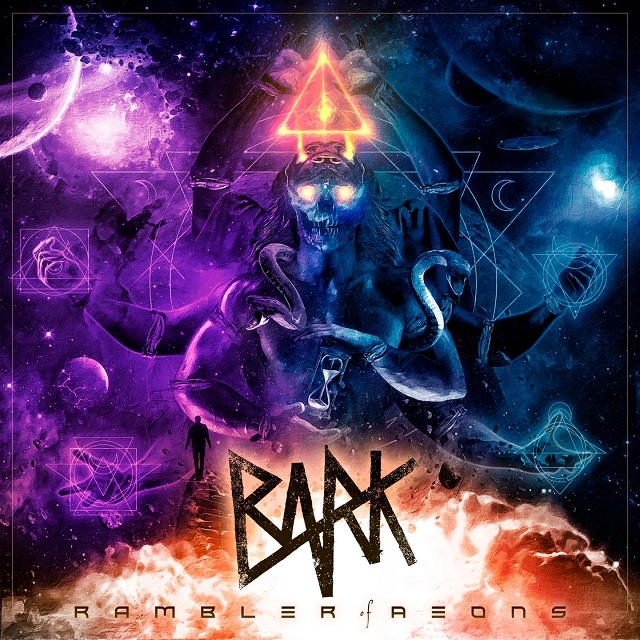
BraveWords: Speaking about the technical side and in the studio, you have a very wide palate of what you're doing from being there live, being involved in the sound engineering as well as mixing, mastering and everything in between, and then also performing on stage. I'm sure there's different satisfaction that comes from different areas of the business, and there must be a different type of feeling between being up and playing with Bark or Destruction to helping create an album.
Martin Furia: “Whoa, it's all very different, you know? But I love all those hats. I love everything. Live sound, I love it, for example. It's so immediate. I was in such incredible concerts. You know, I did sound for Nervosa in Rock in Rio and there were a thousand people around you. The energy was amazing, you know? So that's great. There's no way that that's not great.
“I like producing albums a lot. When you are in the kitchen, it's like cooking, you know? I just have to try and you'll get the (makes gesture) and you say ‘oh this is going to be great!’ You see how it's coming to you, and then playing is also amazing. I like to make music. I feel very lucky. I like music so much that I think I started to develop a thing that I want to be involved with everything that has to do with music. Give it all to me!”
BraveWords: Obviously there was quite a bit of loss associated with the pandemic. And I know loss and death and some pretty somber themes impacted the Bark record quite a bit, speaking of one of your friends Pato who passed away, and I know Lars from Entombed was a focus for a song on this record. You know, in a lot of ways it is a darker Bark album because we've been in dark times.
Martin Furia: “Totally, it's a reflection of what we live. Death, you know, Bark is a weird band in that aspect. We have this way of approaching very fuckin dark stuff, but in a very natural way. It's just the way it is. ‘Okay, this sucks, let's move on.’. I like to turn everything into a song, you know? It's a way to exorcise shit.
“It was horrible when Pato passed away. It was horrible, it was terrible. I was in a rehearsal when I got the news and it was a burst of tears for me, and the guys, even though they didn't know him personally because he's an Argentinian and we never went with the band there, he was the Voice of Dog. He was in all our records. There was a special bond between the bands and stuff, and it was terrible.”
BraveWords: I feel like while this is a heavy Bark record in terms of themes, it's not melancholy. You can headbang to this, and there's almost a fun energy to this record. It's weighty and it's heavy, but it's not depressing. I don't want to listen to thrash or death metal and feel depressed. This is escapism.
Martin Furia: “Bark is what you see is what you get band, totally. We are like that, that when someone is a little bit down, you come to rehearse and you say ‘what's going on? Ah, come on, let's have a beer and play a little bit and try to get better through the music.’ Life is not always awesome to you, because we live nowadays in a world where everything is awesome. Everything is great and everybody shows the best part of their lives and stuff like that. It’s hard to accept that things are not like that. But at least we have music.
“We have a way to exorcise or a cathartic thing to do. Okay, this sucks. Let's go rehearse. You know, let's make a song about this. Then when you listen to it and you are headbanging and you say it is not that bad. It is what it is. At least it is what it is, you know? And I do believe that music is healing and it helps alot. It helped me a lot to deal with these losses. This album was great in that aspect, you know, to deal with that stuff. And then when you send it to the people, the friends or family or these guys that you are making an homage to, they really feel great about it. You know, they say, Oh this song is so moving. It's a way to show love and respect for the people that you love.”
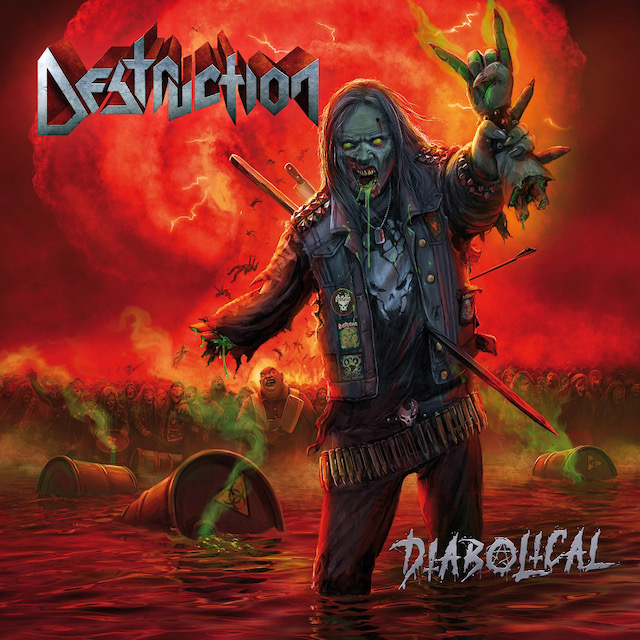
BraveWords: Transitioning to Destruction, and obviously these are guys you've known for years. And now being on the other side of that to being a part of the band, touring, releasing the Diabolical record, that must be an interesting transition, because the familiarity process was already there. You knew the guys so well from touring, so it must have kind of felt like a natural progression just to kind of step into that secondary role.
Martin Furia: “It was very easy, actually. You know, the transition felt like, okay, you have a little more responsibility, of course, because you are in a band with a 40 year trajectory, and you are playing the guitar in the place of one of the founding members. It was no joke. But, it was very easy in the band. I knew the guys so well, I worked with the band for so long. It's been six years and I was soundtech and tour manager and the tour manager is like you are talking all the time with the band. You get used with everything, you know? So it was great, actually.
“The transition was great and to start to play and to see that the fans were super supportive and they welcomed me, it was just killer. I cannot think of anything going smoother than that, you know? It was really super smooth. Of course, I had some concerns, let's say. But I was invited by the band. The band gave me the support. They like how I play, so I say I have nothing to worry about. The fans, eventually they will get used to it, because as a fan also I know that the change of lineups, you know, these kinds of things suck. But as a fan of the band, I actually like my favorite bands to go on, to keep rising and to exist. So I think that in the end that the people that like Destruction, Destruction fans want that we keep releasing records.
“Diabolical was a great record, it was a great expectation, so everything helped to make it a very smooth transition. You know, we all miss Mike, but it was his decision in the end and you have to respect that. You have to respect that he wants to do something else. You have to respect the will of the band to go on. Respect is the base of it all.”
BraveWords: It’s crazy that 2022 marked 40 years of Destruction. It feels to me like Destruction is a band that's always been one of the gems of thrash metal, and they've been releasing albums that are still so relevant today. And to look at it with the lens of 40 years is pretty mind blowing. And I know for you as both a fan and now a member of the band and getting to work with these guys, 40 years of history is something to tip your hat to.
Martin Furia: “It's fucking crazy, man. And when you go on stage and you have Schmier there at your side singing and Randy, a Canadian also, these guys have such a history, and they have it so in the pocket. You learn so much, you have to be there. And it made me a much better musician, but you go on stage and to see Schmier doing this for 40 years you say fuck man! He really got this shit down and how he manages the whole aspects of the show, you learn a lot from that stuff.
“You see the 40 years, definitely. And you know where you see the fucking 40 years? When you have to do a setlist brother! With all of these records and you got to put 40 years of career in one hour and a half, something like that, that's fucking tough. That's very difficult when you have to play 45 minutes in a festival or something like that. You always leave a lot of the favorite songs of the audience out because it's impossible to put 17 records in one hour.”
*Interview condensed for quality and clarity
(Top photo – Christophe Brysse Photography)










